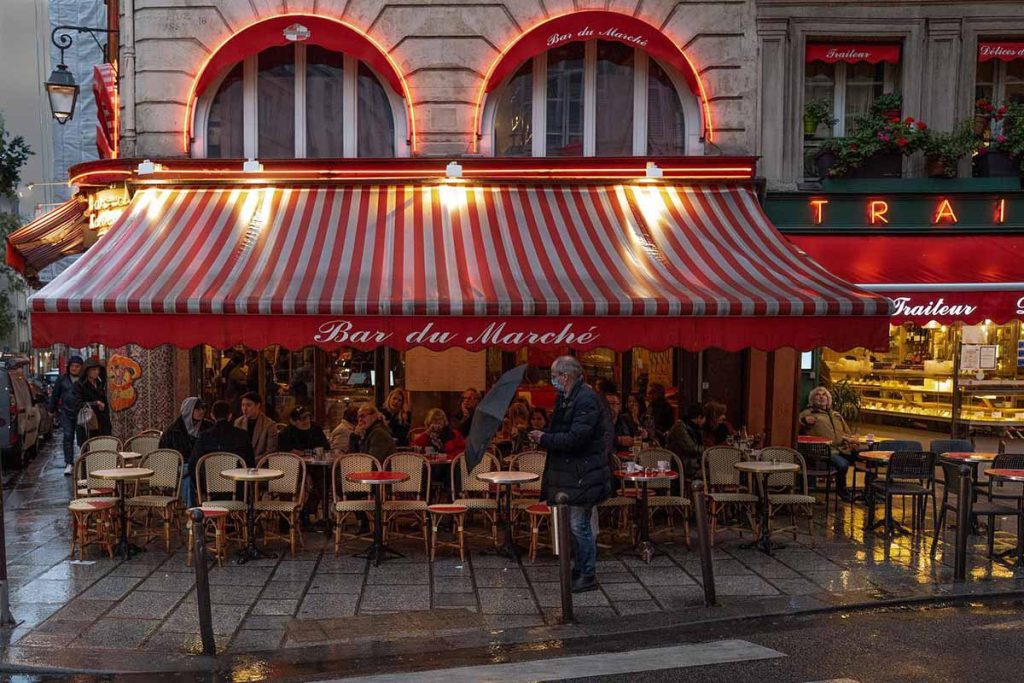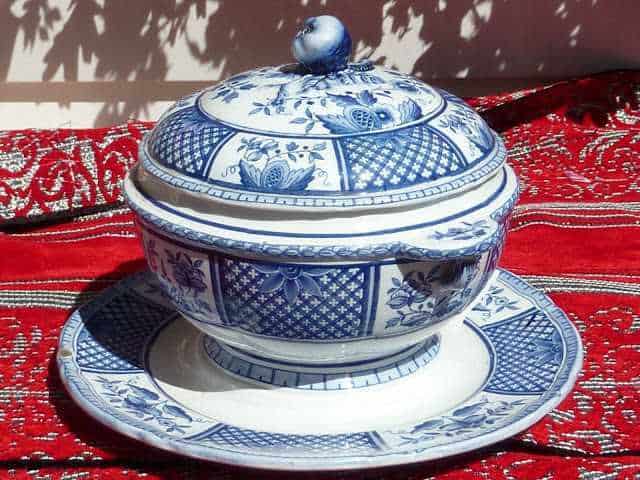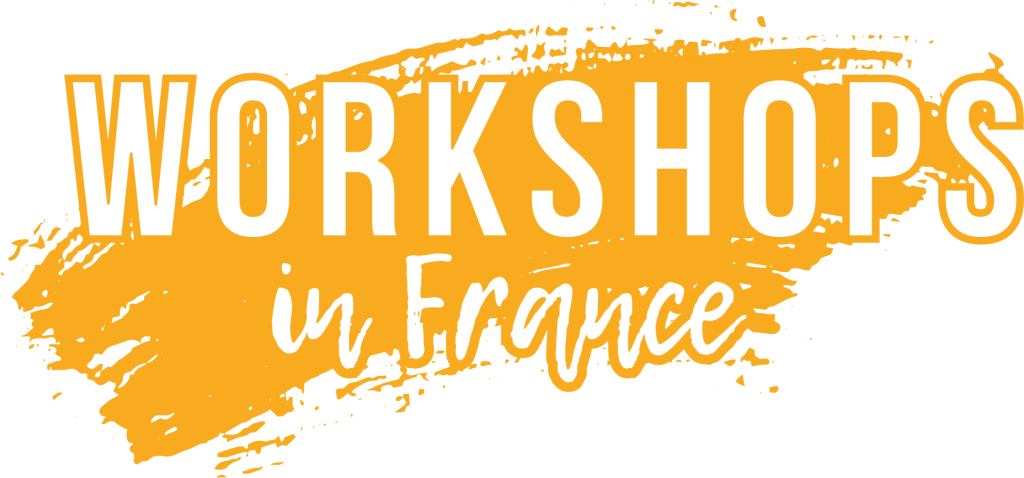Family Affair in France

The art of traveling with family. It’s always a privilege to receive guests who decide to bring family members. We have discovered that one of the most enriching ways to experience a workshop or art retreat is to share it with a family member.
George Howard: Photographer at Large in Provence

Occasionally we meet a non-painting partner whose own work inspires the rest of us. The photographs by George Howard are immediately identifiable for their graphic color and beautiful light, the same qualities that artists seek in our work.
From Train Station to World Class Art Museum: Musée D’Orsay

From a train station to a world-class art museum, the Musée d’Orsay is the top choice for artists who want to view magnificent French art. The Musée D’Orsay has a fascinating history which began as a train station built of steel and glass and became a world-class art museum.
Dreaming of Glorious Provence in Glorious Color

If you asked an artist “What would be your dream painting trip look like?”, their answer would inevitably include a myriad of details that perfectly describe the landscape and colors of Provence. Every season in Provence is an artist’s dream, but September ranks high as one of our favorite times to travel to the South of France.
Soup Tureen or Chamber Pot?

One of our favorite things to do while in France is to visit a vide-grenier. A vide-grenier is literally translated as “empty your attic” and rather than just being a flea market or village-wide yard sale, it can be an event filled with treasures.
The French You Already Speak

You Already Know More French Than You Think. Just for fun, we started looking at the French words that have been in common usage in the English language for a long time. Remarkably, many of these words seem to pop up in the realms of culture and cuisine. No surprise there, as France is known for exactly that – their wonderful culture and delicious cuisine. Let’s start right here with food! Cuisine “Cuisine” – This is exactly the same word in both languages. Let’s look at some more… You already know so many of them! With this in mind, rest assured you won’t starve! “Restaurant, chef, café, vinaigrette, gâteau, sauce, pique-nique, salade, soupe, aperitif, menu, croissant, hamburger, chocolat.” Ha! And, there’s “silhouette”, which might change depending on your consumption of the aforementioned. The Arts and La Renaissance We also find a host of French words in the world of art. Florence, Italy was the epicenter of the greatest rebirth of creativity which the Italians call the ‘Rinascimento,’ but in English and in French we refer to it as the Renaissance. Art in French is ‘Art’, pronounced Arr, even in the plural. Let’s look at a few more art terms. Art nouveau, art deco (art décoratif), artist (artiste), impressionism (impressionisme), avant-garde, realism (réalism), surrealism (surréalisme), cubism (cubisme), trompe l’oeil, paper maché (papier-mâché) and film noir. Although French is also the language of ballet, it was actually brought to France from Italy by Catherine de Medici. Ballet dancing as we know it was adopted by the French royal courts where it flourished. “Cuisine” – This is exactly the same word in both languages. Let’s look at some more… You already know so many of them! With this in mind, rest assured you won’t starve! “Restaurant, chef, café, vinaigrette, gâteau, sauce, pique-nique, salade, soupe, aperitif, menu, croissant, hamburger, chocolat.” Ha! And, there’s “silhouette”, which might change depending on your consumption of the aforementioned. Royalty and French French was the official language of the courts, that is, the Royal courts. Around 700 years ago it was the most widely spoken language throughout all of Europe. At that time, the rulers in Europe used French to communicate with each other. It was spoken by their liaisons and international treaties were hashed out in French. No doubt a few French swearwords were tossed around at those who disagreed. French was the language of the gentry. It was generally seen as the language of sophistication, power and wealth. It became a popular second language. By the end of the middle ages, the lingua franca of Europe was indeed French. Of course, the term ‘lingua franca’, is Latin and not French, but it means the language used between people who do not share a common language. A contemporary example of a lingua franca would be Emoji. ❤️ 🇫🇷 🍷 Pronunciation So, you do know these words, but do they sound French when you say them? Probably not. It’s the pronunciation that makes them French. So here’s the mini-lesson of French pronunciation. It’s very general, but it should help. Firstly, the French pronounce every syllable without the English way of stressing one syllable over the others. Take “pronunciation”. We say “PRO-NUN-SEE-AISHUN”, with the stress on NUN, the French would say each syllable – “PRO-NUN-SEE-A-CEE-ON”. If that doesn’t slow you down a bit, the French also tend to drop or swallow the very last consonant if it ends the word. Yes, drop the last consonant, unless the next word starts with a vowel, in which case you need to add it back in. Complicated? Oui! Even More French To round out this blog on the French words you already know, look at these: R.S.V. P. (Répondez S’il Vous Plaît); bourgeois; brunette; blonde; déjà vu; fiancée; chic. All French and all English too. There must be so many more but hopefully these will give you a little confidence about being able to speak this beautiful language. In order to gain more understanding of French and the culture of France, may we suggest that you drink good coffee, share excellent wine and come join us on an artistic and inspirational journey with WorkshopsInFrance. Blogger: Julie Snyder Julie Snyder is a professional artist and also the programs director of Workshops In France. A native of Scotland, she is a seasoned traveler who splits her time between California and France. You can learn more about her role with Workshops in France here and about her painting on her website.
Coffee is an Art Form in France

Coffee in France is an art form, and an art-form that we have researched intensively. We fully expect to spend the rest of our lives continuing our research, just to make sure we don’t miss any nuances.
Our conclusion so far? Yum!
Our Secret’s Out: The Multi-Talented Scott Burdick

This coming October, we will be hosting world-renowned artist Susan Lyon in a masterclass in Provence, which is fantastic news for anyone who wants to study with a true master. But the best-kept secret of this masterclass is that Susan’s equally-renowned husband, Scott Burdick, will be joining us and painting right alongside her.
The Wonder of Lavender in Provence

Your first step into a lavender field is a complete sensory invasion.
First there’s the unique color, and then the unforgettable scent. When a breeze crosses the field, it becomes a sea of undulating purple. Then there’s the constant sound of…
Bonjour Decoded

To get the most out of your trip to France, you have to connect with the locals – and the best way to connect is to speak their language. Even if you don’t speak French, in large cities like Paris, most locals speak a good amount of English. But if you walk up and try to start a conversation in English, they’ll likely be a little less than willing to help. So, start with the one word of French you must know to speak their language! Fortunately, learning a few easy phrases makes a world of difference. It Starts With Bonjour Always, always, always start every interaction with a French person with “Bonjour”, or “Bonsoir” if in the evening. To do otherwise is considered extremely rude. Asking directions? Say bonjour! Buying a baguette? Say bonjour! If you’ve ever heard that the French can be rude, it’s probably because the person didn’t say bonjour! Oh, and resist the temptation to say excuse me (excusez moi) before you say bonjour. You’ll just make the person wonder what you did wrong! Then ask “Parlez-vous Anglais?” meaning, “Do you speak English?” Locals appreciate it when you at least attempt to speak their language, even if you’re terrible at it. Usually, they’ll answer with a smile and say yes or no. Head’s up – In smaller French cities and towns, locals often speak little or no English. In these areas, you’ll want to have a translator handy. Apps Help! Several smart phone apps are available for free downloads – Google Translate is one of the most popular. Using the app, you can download a language pack before your trip, so it won’t require data when you’re abroad. This is important because your U.S. phone plan likely charges exorbitant international data fees, and many phone apps require data. With Google Translate, you can type in anything and it will translate from English to French and vice versa. You can also use your phone’s camera to hover over signs and menus and see a translation. This feature is extremely useful when you’re at a restaurant reading through “Le plat du jour,” or the daily special. Speaking of food, you’ll want to check out these tips for eating in France. And when you’re ready to end with a thank you, say “Merci”, then “au revoir” which means “See you again!” Even if it’s someone at the train station who you know you’ll never see again! If you want to sound like a local, you can also add goodbye with “Bonne journée” (pronounced bon joornay) and wish them a good day! Where there is a plan to meet up again soon, you can really impress them with your French by casually throwing out “À plus!” (pronounced Ah ploose) which is short for “See you later.” Enjoy your trip and remember to sign up for our newsletters to receive insider travel tips and stories. Au Revoir! Blogger: Julie Snyder Julie Snyder is a professional artist and also the programs director of Workshops In France. A native of Scotland, she is a seasoned traveler who splits her time between California and France. You can learn more about her role with Workshops in France here.
